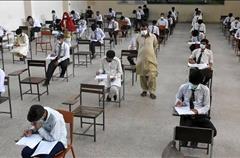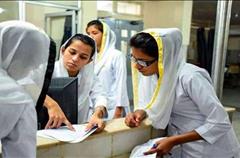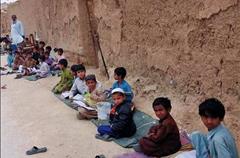Peshawar, The Khyber Pakhtunkhwa government will start distribution of laptops among 25,000 brilliant students of the province in the last week of December.
This was announced in a meeting held at Chief Minister’s Secretariat on Wednesday with Chief Minister Ameer Haider Khan Hoti in the chair.
Initially, the laptops would be distributed among the students of 4-year Bachelor of Studies (BS) program and students of professional colleges including medical and engineering, officials privy to the meeting told Dawn.
They said that laptops would also be given to the top 10 position holders of government schools in the intermediate examinations conducted by all boards of intermediate and secondary education in the province.
Similarly, two percent quota was reserved for disabled students of BS program and engineering and medical institutions, they added.
They said that students of master degrees enrolled in the public sector colleges and universities were not included in the scheme until now.
The provincial government has allocated Rs1 billion for the laptops distribution program under Naway Sahar Scheme (New Dawn Scheme).
Overall estimation has been made that more than 25,000 laptops among the brilliant students and each laptop will be given at Rs40,000, said an official. The number of laptops could be increased if the price was below the estimated rate of Rs40,000, he added.
Regarding criteria for getting a laptop, the official said that minimum marks for the students of semester system were 75 per cent and 65 per cent for the students of annual examination system.
The meeting was informed that technical proposal was opened by the procurement committee of the higher education department. Technical evaluation was under process by the committee constituted for the purpose, the official said.
.Additional chief secretary and administrative secretaries of different departments attended the meeting.
The chief minister said on the occasion that government’s special initiatives for controlling problems of unemployment, illiteracy, poverty, fatal diseases and energy would have lasting effects. He said that special initiatives for technical education and woman education would also prove useful.








.gif)





























